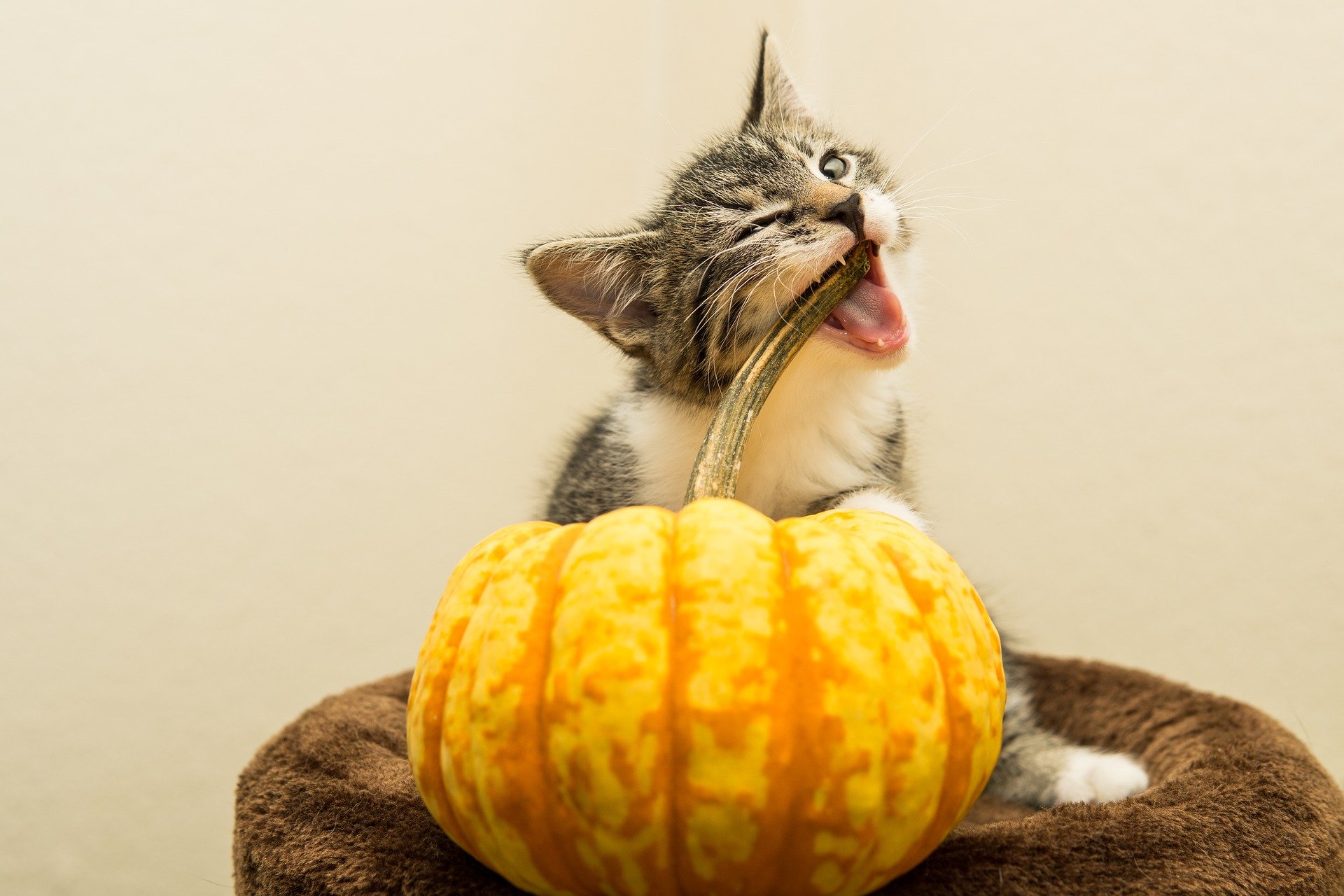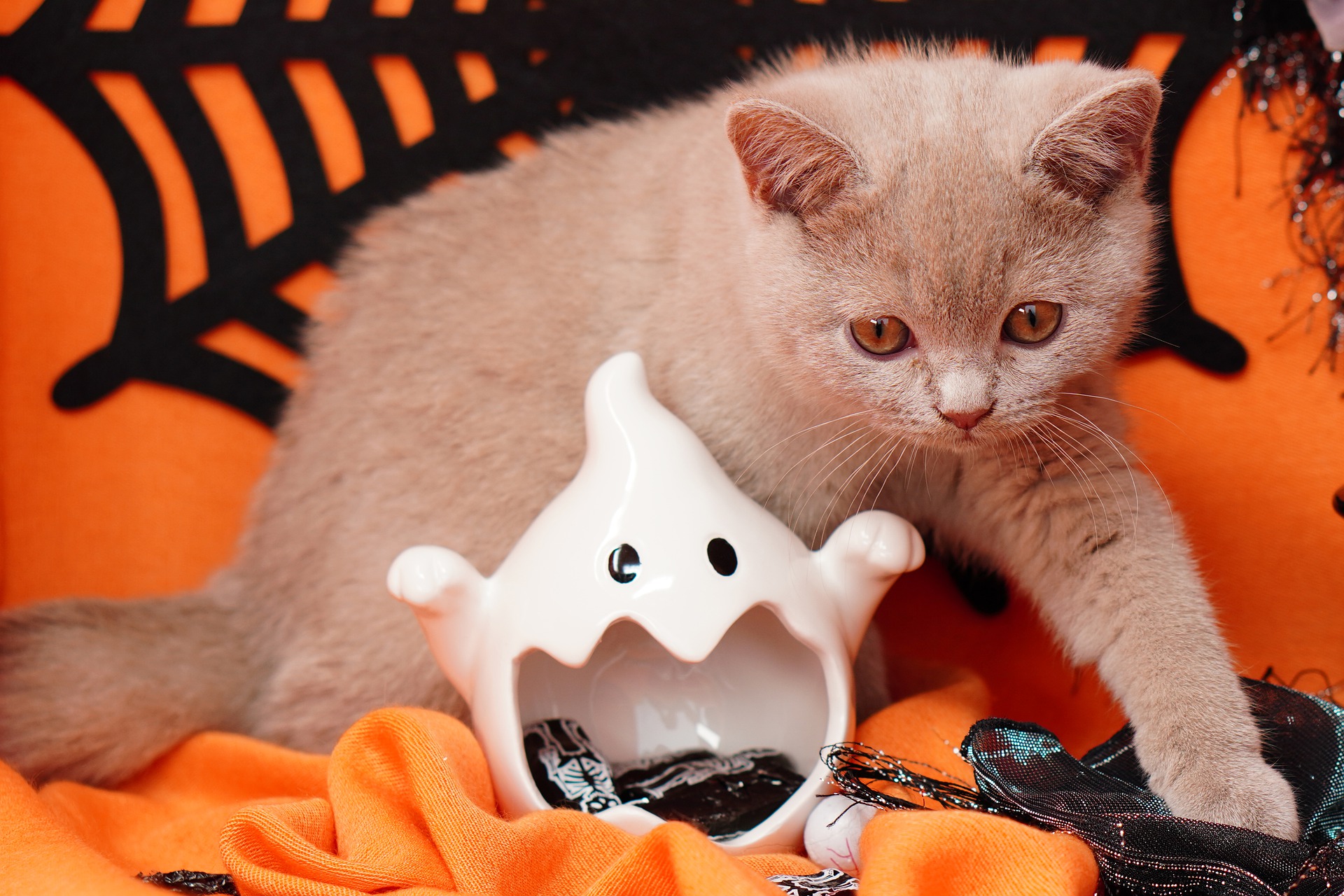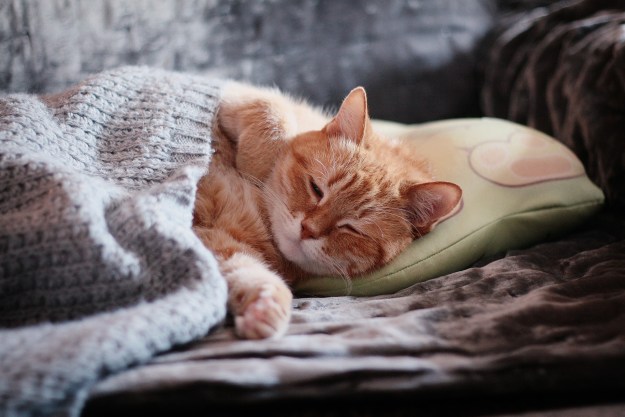Halloween is full of frights, but for your cat, these frights aren’t the fun kind. In fact, Halloween can be highly stressful for your feline friend, with the doorbell ringing constantly and people in costumes coming to the door. Loud noises, lots of change, and big gatherings can further add to your cat’s stress. But Halloween doesn’t have to be a holiday that causes them to turn into a scaredy-cat. While you might not have an entirely anxiety-free cat, there are ways to keep your kitty feeling more comfortable and less anxious.

Ways to keep your cat calm
When you understand how to keep cats calm, you can minimize their stress. Read on to discover ways to take the spook out of this spooky holiday for your cat.
Provide a safe spot
Before the festivities begin, give your cat a safe place in the house to go. This might be a room in the back of your home or even a room in the basement. Try to choose a spot that’s away from the action, whether you’re having a party or expecting trick-or-treaters. Make sure the room has some dark and cozy spaces where your cat can go to feel safe, like under a bed or in a closet.
Putting your cat in a secure room serves multiple purposes. It can help reduce your cat’s stress since he’ll be away from the action. The room also helps keep your cat safe. With the doors opening for guests or trick-or-treaters, it’s easy for a stressed cat to escape and get lost. Knowing your cat is secure in another area of the house can give you peace of mind and keep him safe.
Offer distractions
You can create distractions to help drown out the noise of trick-or-treaters and visitors. Play a radio quietly or turn on a fan in your cat’s room. You can also turn on the TV or a white-noise machine. This steady sound can give your cat something else to focus on, making the sounds of Halloween less upsetting.
Use pheromones
Pheromones provide natural support that can help your cat feel calm and safe, and using them on Halloween can help relieve some of the stress your cat is feeling.
You can use pheromones in several ways. They’re available in convenient spray bottles that you can spritz around the room where your cat is spending Halloween night. They are also available in plug-in diffusers. The units gradually release pheromones, ensuring there’s a steady supply. This can be ideal if you want to help soothe your cat’s nerves in the days leading up to Halloween.

How to reduce Holloween mayhem in your home
When your home is quiet, your cat will naturally feel more relaxed. There are several ways to create a calm environment inside your home, even with little ghosts and goblins running amok outside.
Eliminate the doorbell
Trick-or-treaters knocking on the door or ringing the doorbell can further stress your cat. Try to cut down on the noise by putting a bowl of candy on the porch, or by sitting outside and greeting visitors as they come up. If your cats are in a room where they can still hear the noise from the porch, try to avoid any loud, Halloween-themed soundtracks full of stressful screams and other scary sounds.
Avoid greeting your cat while in costume
Costumes can be terrifying for cats, especially if they involve masks. Try to avoid wearing costumes inside if possible. If you put on a costume, put on your mask last and avoid approaching your cat while wearing it. It’s easier to avoid your cat if you put him into his room or safe space for the night before everyone gets into costume.
Even with these tips, Halloween can still be stressful for your cat. The best thing you can do for your cat is to give him some space. He’ll probably hide and avoid people for a while, but that’s how he feels safest. If you’re worried about your cat, check on him occasionally, but try not to disturb him. Instead, continue with Halloween in a different area of the house. Once the festivities are over, the place is secure, and you open the door to his room, he’ll likely come out gradually on his own. He’ll settle down with a bit of time and feel right at home again.
Editors' Recommendations
- Wondering why cats chirp? Fascinating reasons why your cat chirps at birds (and you)
- How to cat-proof your balcony before the unthinkable happens
- There’s a totally normal reason cats throw up after eating grass – here’s why
- Your cat trilling is actually a good thing – here’s why
- Why doesn’t my cat meow? Here are 5 reasons why your feline friend is silent



